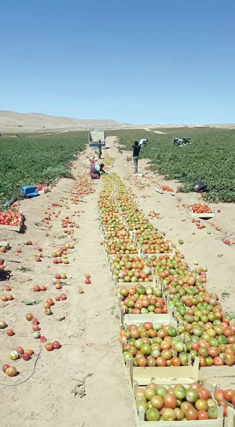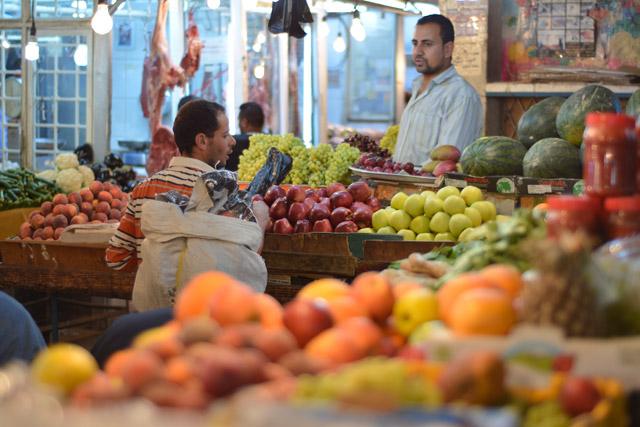You are here
Jordanian exporter delivers first vegetable shipment to Qatar in 3 years
By Rayya Al Muheisen - Oct 02,2022 - Last updated at Oct 02,2022
AMMAN — A Jordanian exporter managed to deliver the first shipment of vegetables to Qatar on Sunday after three years of no exports, according to a sector representative.
Sa’di Abu Hamad, president of the Vegetable and Fruit Exporters Association told The Jordan Times that a Jordanian exporter “took the risk” of sending a shipment from Jordan to Qatar via a Saudi shipping truck on Sunday.
“We still don’t have any official documents to authorise the export of fruits and vegetables from Jordan to Qatar,” Abu Hamad added.
Abu Hamad indicated that there’s no ban for Jordanian vegetable and fruit export to Qatar, however, “Jordanian drivers, along with their transport vehicles, are not obtaining visas from Qatari authorities,” said Abu Hamad.
“The Gulf Cooperation Council (GCC) countries are a huge market for Jordanian exporters,” Abu Hamad added.
Abu Hamad added that GCC countries are replacing Jordanian fruit and vegetable exports with local produce, or imports from countries with more competitive pricing.
“Jordanian produce is well known for its quality,” Abu Hamad added.
Meanwhile, Radi Ajarmeh, tomato farmer and exporter, told The Jordan Times that political intervention is “highly needed” to resume exporting the same quantities of Jordanian fruits and vegetables to the GCC countries.
“Framers lost hundreds of thousands of dinars when the GCC cut down their vegetable imports from Jordan,” Ajarmeh added.
Ajarmeh also refuted the claim that Jordanian produce has high levels of pesticides. “Farmers are too broke to be using large quantities of pesticides in their produce,” he said.
Ajarmeh added that to ensure the safety of imported food products, some GCC countries have imposed more stringent measures, such as pesticide analysis.
Abu Hamad stated that there are challenges in exporting to GCC markets due to high export taxes, the long wait time for produce approvals and the cost of the inspection, which is paid by farmers.
Related Articles
AMMAN — Tomato farmers are losing tens of thousands of dinars annually over unprofitable tomato seasons that they claim have been harm
AMMAN — Farmers and exporters on Sunday urged the Gulf countries which imposed a ban on the imports of Jordanian vegetables to delay the sta
AMMAN — Jordanian exporters of agricultural produce have stopped exporting several types of vegetables to the United Arab Emirates and other

















